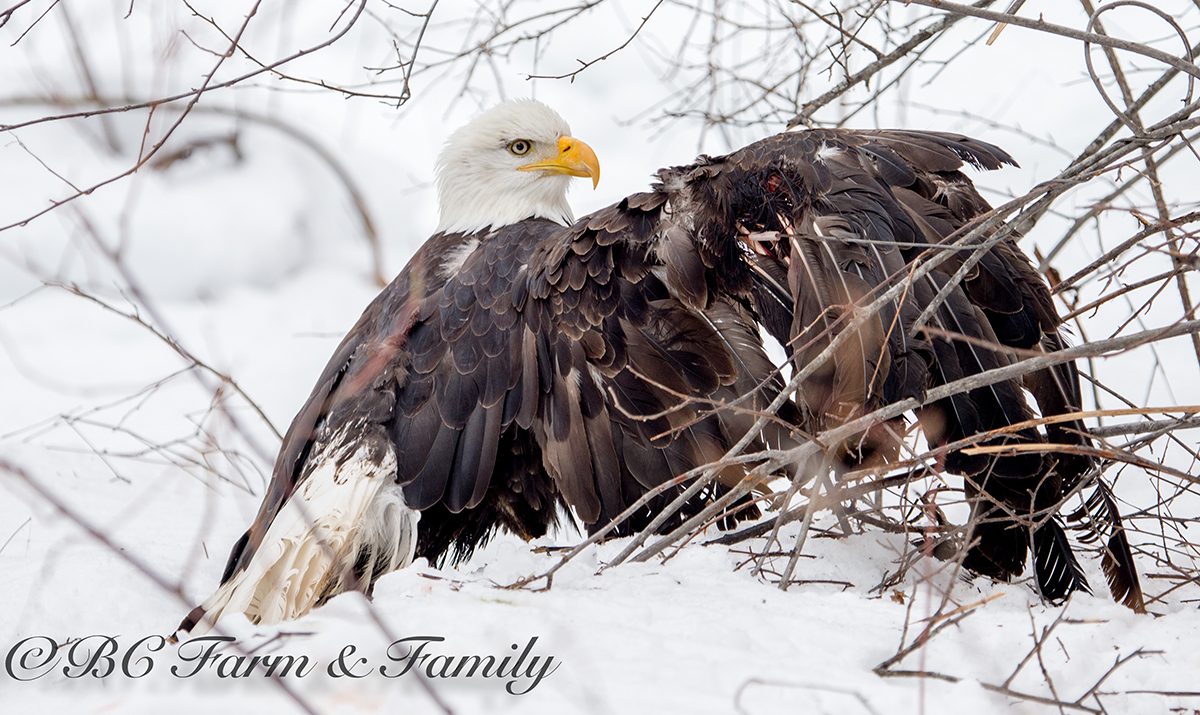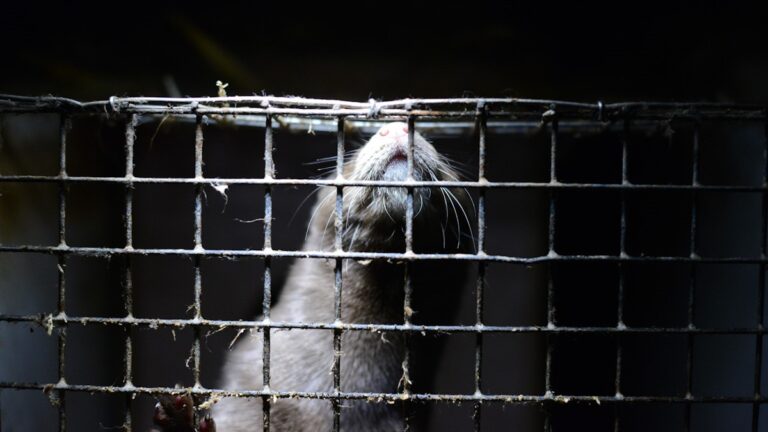
While sledding near her Edgewood home, with the intention of photographing some of the region’s moose, Tasha, her boyfriend, and his father, came across the disturbing scene: an adult bald eagle, trapped by a snare.
Using safe techniques, such as wrapping the eagle in a jacket, and understanding how to carefully loosen and remove the snare, which was likely set to kill wolves, the eagle was released. A clear injury on his wing, the eagle was transported by Tasha to the British Columbia Wildlife Park.
The BC Wildlife Park told The Fur-Bearers that the eagle has a crushing injury on his right wing “ankle” that resulted in a large hematoma. But they do not suspect that the joint is broken, and expect a full recovery and release. It is estimated the eagle was in the trap for two to three days, and were it not for surprisingly good health prior to the incident, the outlook for his condition would not be as positive. However, there are no trap check times for snares – meaning that had Tasha and her group not found the eagle, he could have suffered in the snare for days or weeks and died of exposure, dehydration, or defenseless against another animal, before a trapper returned to the site.
Tasha wants the public to know the realities of trapping – but the case against snares is much more than an upsetting photo or video. Domestic animals are caught and killed in snares set for wolves, coyotes, and fox, across the country every year. In British Columbia, an internal government report indicated that at least85 animals killed or injured by such traps in a 10-year period. And a recent study led by Dr. Gilbert Proulx showed that snares fail to perform as designed regularly, and that they are non-selective, impacting non-target wildlife severely.
Traps are inherently inhumane – they hold an animal against their will, either causing them extreme duress or, in some cases, death. Ongoing studies show that killing predators has greater negative ecological impacts than we ever knew. It’s time to stop the cruel use of snares.
monthly donor(for as little as $5/month – the cost of a single latte) pleaseclick hereand help us save lives today.

